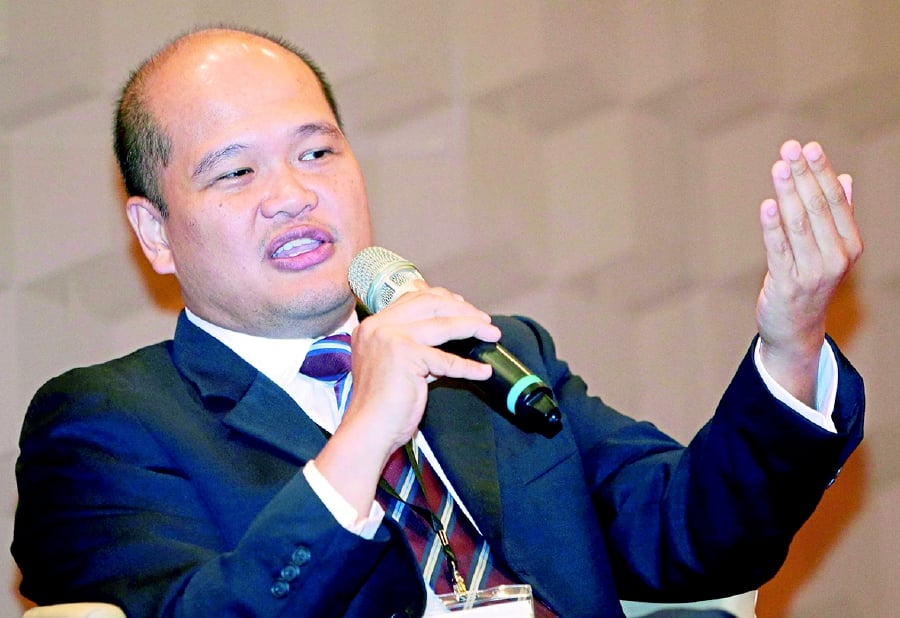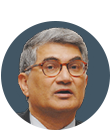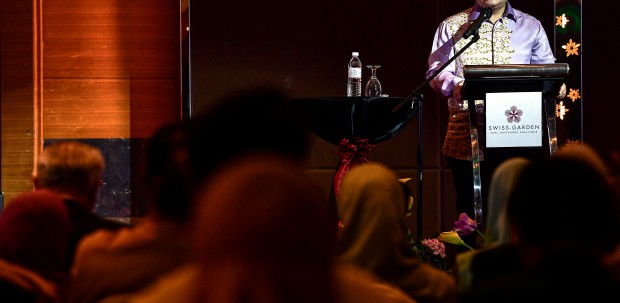THE appointment of Oxbridge-educated Datuk Shahril Ridza Ridzuan as the managing director of Khazanah Nasional Berhad, the people’s strategic investment fund, effective Aug 20, is an uncanny move on the part of Prime Minister Tun Dr Mahathir Mohamad as part of the Pakatan Harapan government’s election pledge to restructure government-linked companies (GLCs), and in the case of Khazanah, “to put it in the right direction”.
Malaysian GLCs, including Khazanah, have, over the years, attracted much attention, primarily because their existence is mired in the body politic of the country. They come under the purview of the Prime Minister’s Office or the Finance Ministry and inevitably the temptation of successive governments has been to use them in times of economic crisis or to boost national budgets.
Dr Mahathir, for instance, set up Khazanah during his premiership under Barisan Nasional in 1993, a decade when GLCs played an important role in helping Malaysia weather the Asian financial crisis in 1998, preempting the need to go cap-in-hand to the International Monetary Fund begging for a standby loan, for which the prime minister won a lot of plaudits albeit to the chagrin of the fund.
One can understand the emotional attachment Dr Mahathir has with Khazanah.
He has moved decisively to install himself as the chairman of Khazanah’s board together with his fellow board members Datuk Seri Azmin Ali, the economics affairs minister; Tan Sri Mohd Hassan Marican, ex-CEO of Petronas; Dr Sukhdave Singh, ex-deputy governor of BNM; and Goh Ching Yin, ex-executive director of the Securities Commission Malaysia.
One can only assume that Dr Mahathir’s chairmanship of Khazanah is a short-term measure aimed primarily at getting the GLC’s revised mandate up and running.
If he can repeat the success of turning around the country’s corporate and financial sector debt in the aftermath of the Asian financial crisis, then the future for Khazanah bodes well.
According to the latest data from the US-based Sovereign Wealth Fund (SWF) Institute, Khazanah is the 26th largest SWF in the world in terms of assets under management (AUM) totaling US$38.7 billion (RM157.9 billion) at end June this year.
Contrary to some local perceptions, Khazanah is a transparent institution scoring high on the Institute’s Linaburg-Maduell Transparency Index — 9 out of a maximum of 10.
Khazanah pales into insignificance when compared with the top three SWFs in the world — the Government Pension Fund of Norway, at US$1,035.24 billion the single-largest SWF and the only one with assets exceeding US$1 trillion and a perfect 10 transparency score. This is followed by the China Investment Corporation with AUM totalling US$941.4 billion and Abu Dhabi Investment Authority with assets of US$683 billion.
Dr Mahathir and the Khazanah board can learn much from the proven corporate governance and asset allocation strategies of the Norwegian SWF, which is the most successful, not only in terms of return on investment and helping Norway to prepare for a future without oil, but also pursuing a more socially-inclusive agenda incorporating sustainable and socially responsible investment goals for its investments, the environment and governance, and alignment with the UN Guiding Principles on Business and Human Rights (UNGPs).
More importantly, to pre-empt any shenanigans, the Norwegian SWF has a statutory arms length independent ethical oversight committee, which ensures that the SWF sticks to its mandate.
At the relatively young age of 48, Shahril, serving out his tenure as the CEO of Employees Provident Fund, the state pension fund, could not be a better choice.
In our few meetings, he has come across as an astute self-confident operator at ease with “the EPF’s vision of becoming a world-class organisation for being the first in the world.”
Indeed, it was he who pioneered the first Islamic state pension fund when he launched Simpanan Shariah in 2017. EPF is a thoroughbred among state pension funds, complete with a world-class asset allocation strategy and shareholder activism to meet 21st-century governance.
He has also supported the Islamic finance industry by allocating some 40 per cent of investments to the Shariah space. As at end March 2018, the number of EPF members totalled 13.91 million, with contributions reaching RM19.24 billion and investment income totalling RM12.88 billion. The total EPF fund at end March stood at RM774.48 billion.
The change of leadership at Khazanah, whatever the motives, is timely.
The market perception was that the GLC was becoming too predictable and stuffy. Khazanah, as Mahathir rightly alluded to, needs to get its “direction” sorted out.
In the past it acted largely as a private equity outfit, albeit it has led the way in pioneering Sukuk structures, including social Sukuk; issuances in several foreign currencies including Singapore dollars and renminbi; and in new markets such as China. Its acquisition of Pantai Hospitals and Parkway Holdings in Singapore, when it entered into a bidding war with Fortis Healthcare of India, thus pushing up the price by a few million, however was not one of its finest hours.
Being a non-commodity fund, unlike the oil-based Norwegian and Abu Dhabi ones, there is little upward movement in the AUM of Khazanah, which cannot just rely on the upside of its investments.
Here, Dr Mahathir and the Khazanah board need to come up with urgent ideas of how to supplement the coffers of Khazanah to make it more relevant in the service of the rakyat.
Mushtak Parker is an independent London-based economist and writer






